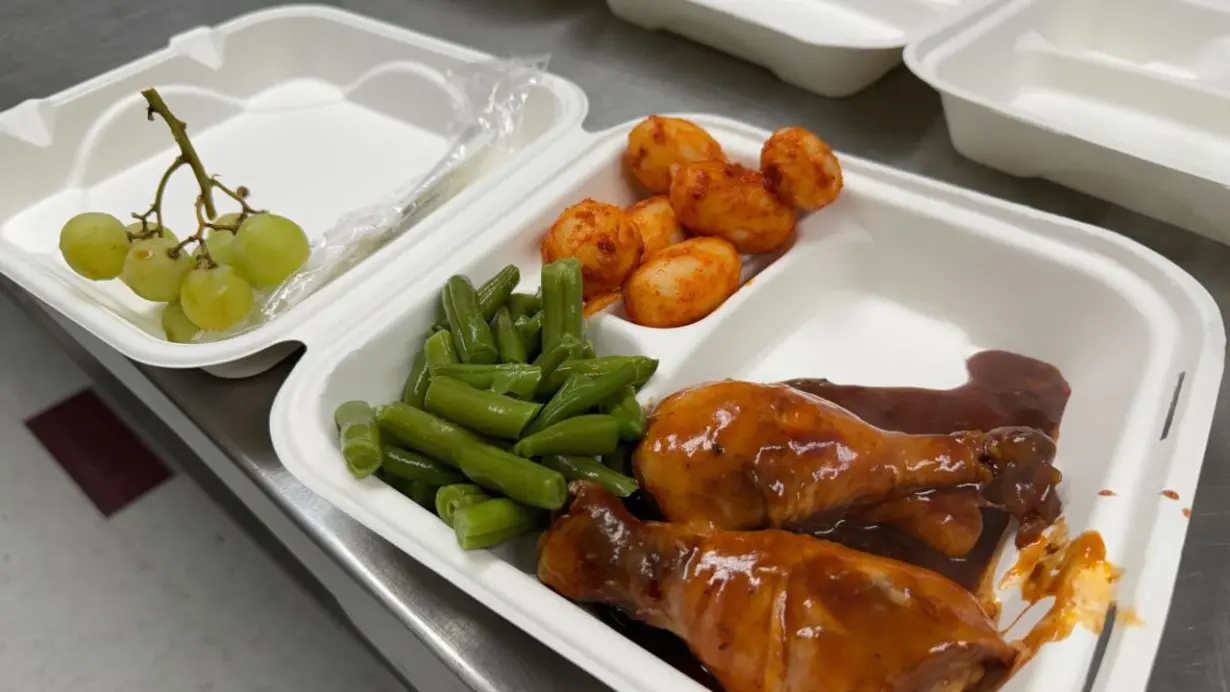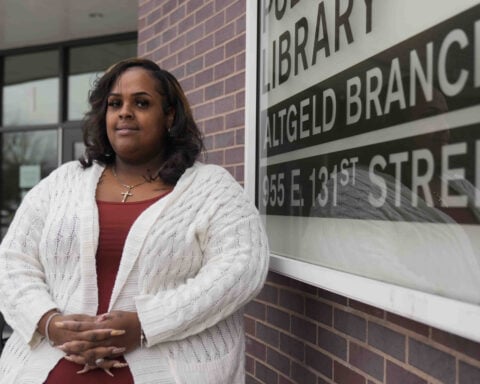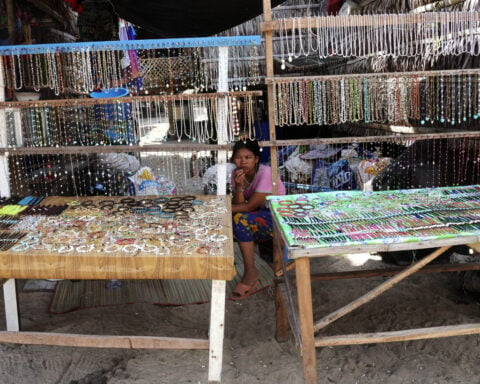HILLSBOROUGH COUNTY, Florida (WFTS) -- Now that we’re a month into the start of the school year, parents are sharing their concerns over school lunches and processed foods.
“What is put into my children's body is important,” said parent Tiffanee Russ.
Russ is a mom of five who’s concerned about what her kids are eating at school.
“Of my five, I have three that have been diagnosed with ADHD, so the processed things really hit home to me,” said Russ.
She’s noticed that some of the items offered for lunch are less nutritious than she’d like.
“I think this is, we’re going on the second year that they have been allowed to eat the school lunch. And it’s just probably not my favorite thing,” said Russ.
Russ would like to see foods with more substance and is concerned about how many processed foods are available to kids.
That’s something that’s a priority to Julie Begani too, who’s also a parent to young children.
“There’s so much stuff in that ingredient label. For me and in my house, we try and stick to the four and five rule. If there’s anything more than four or five ingredients, it’s probably not something we want to eat,” said Begani.
Begani works as the Director of Advancement at Hillel Academy in Hillsborough County.
ABC Action News visited the school to see how they handle lunch for students.
“We’ve had brisket, we have salmon, we have a whole variety. And really, we emphasize and make sure there is protein, there’s vegetable, there’s starch, there’s fruit so that all of those food groups are nailed,” said Begani.
Health experts believe this emphasis on nutrition is important because a recent study found that kids who eat ultra-processed foods have a greater risk for cardiometabolic problems like heart attack, stroke and diabetes in adulthood.
“We’re talking about things that have long chemical names with a lot of preservatives, a lot of additives, added food colorings. Those are all things that would be considered ultra-processed foods,” said Dr. David Berger, a pediatrician with Wholistic Pediatrics & Family Care.
Berger recommends being mindful of what parents pack in their child’s lunch box.
If they eat food from school, Berger encourages families to teach kids how to make healthy choices.
“So if there’s a baked or a grilled meat as opposed to a fried meat or something like that. Something that’s not saturated in all kinds of sauces, that could be important. Choosing fruit as opposed to juice,” said Berger.
“Of course as parents, part of it is us modeling so if our kids see us eating healthy and we explain why we’re eating it healthy. And we’re explaining why it’s important for them to eat healthy,” he added.
Berger believes adding more whole food to kids' diets will set them up for a healthier future.

 Bluesky finds with growth comes growing pains — and bots
Bluesky finds with growth comes growing pains — and bots
 Suspect in German Christmas market attack held on murder charges
Suspect in German Christmas market attack held on murder charges
 Italy's Meloni says security threat posed by Russia is far-reaching
Italy's Meloni says security threat posed by Russia is far-reaching
 Spain's Christmas lottery spreads cash and seasonal joy to winners
Spain's Christmas lottery spreads cash and seasonal joy to winners
 Lindsey Vonn to resume her comeback in St. Anton in January after St. Moritz race canceled
Lindsey Vonn to resume her comeback in St. Anton in January after St. Moritz race canceled
 Lindsey Vonn's 2nd World Cup race back from retirement is canceled due to poor weather in St. Moritz
Lindsey Vonn's 2nd World Cup race back from retirement is canceled due to poor weather in St. Moritz
 Japan's antitrust watchdog to find Google violated law in search case, Nikkei reports
Japan's antitrust watchdog to find Google violated law in search case, Nikkei reports








